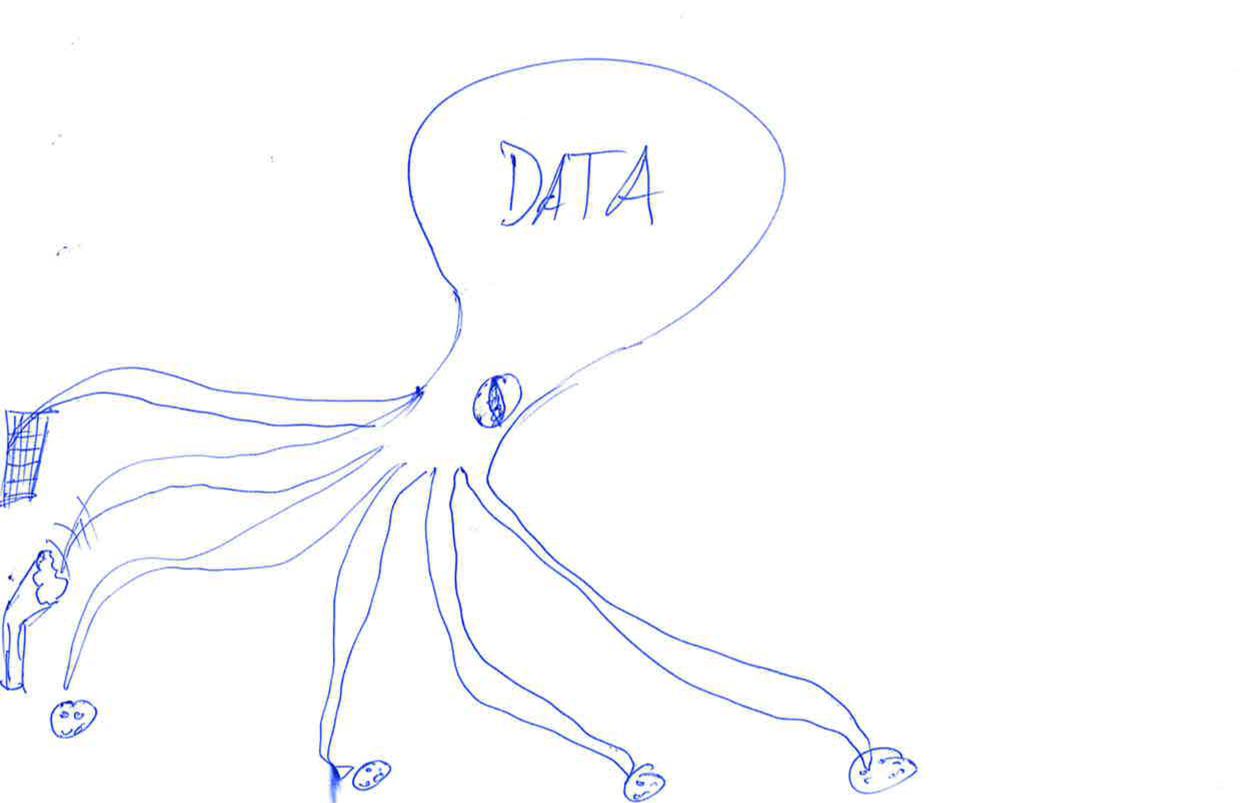An algorithm, drawn by a 20-year-old male high school student in Switzerland.

Then I would ask you to below draw an algorithm, how an algorithm works, how you imagine it works. Whew. Um... Let me get this right, an algorithm is a program you can give inputs to and then it does the computation and then you get what you want, usually. I'm not at liberty to comment. Okay, so an algorithm, like a search algorithm... Oh, right, it takes data and okay... Hmm, let me think about that for a second. You can go ahead and just draw. It might be easier to draw than to describe. Okay, um. [laughs] [prolonged silence] The little dotted one, that's cookies. Underneath? Yeah, so cookies. Computer cookies? Yes, computer cookies. All right, and that above is an octopus? Hmm [affirmative] You labelled it ‘data’? He's got a big bag of data in the back of his head, where there's usually air, and yes... Here, I don't know. The cookies are like the input you give him, he eats them and so he has a lot of data he can process and then here on his last arm. Actually he needs two more arms. here and here another one, like this. He has two more arms. One is for the command input, we make a... It's like a mouthpiece. He gets his orders in here and then we give him a keyboard here. Here he uses the keyboard to give the output, that's what we give him. What he does in between, what happens in his head, you can't see that. Very exciting, do you know in what context you first heard about algorithms? Probably the word search algorithm from Google or something like that. Okay So that's what I drew from. Okay, so this Kraken is like a search algorithm that takes what it needs? Yeah, exactly. Okay He collects data that he already has and with this data he evaluates, gives an output that he thinks is right for what was suggested to him. Okay, thank you.